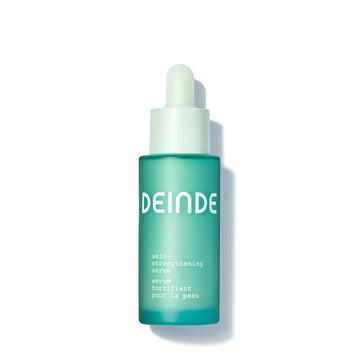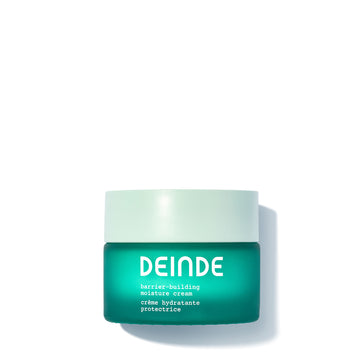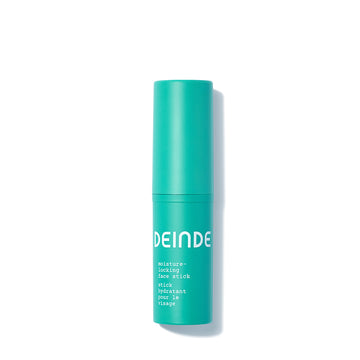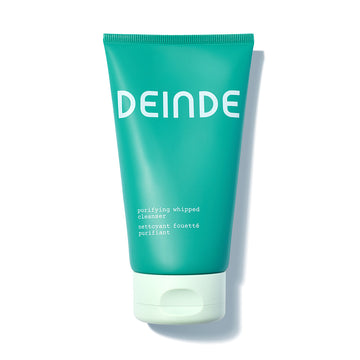
Biotech in Beauty 2024: Sensitive Skin Products
Sensitive skin is a reality for up to 70% of women and 60% of men who regularly navigate a product market rich in preservatives, artificial fragrances, and harsh active ingredients. All skin has the potential to be triggered – with the rise of pollutants and external stressors, we believe that all formulations should consider skin sensitivity.
As the beauty industry continues to evolve, biotech offers an opportunity to cater to all skin types beyond the tried-and-true gentle formulations readily available. Through a biotech lens, skincare can be developed in a way that addresses those with the most sensitive skin, whether that’s through advanced delivery systems, biocompatible ingredients, or ensuring a clean and traceable supply chain.
What is sensitive skin?

Sensitive skin refers to heightened reactivity to environmental inputs and skincare products. Triggers like chemicals, extreme temperatures, UV radiation, etc. can activate redness, allergic reactions, dryness, or sustained itching — and can exacerbate certain skin conditions. Essentially, skin steps into a fight or flight mode, which requires due diligence when choosing skincare products and generally moving through the world. The concept of sensitive skin was developed in the 70s, when formulations were developed toxic-free, but still received backlash from consumers reporting stinging sensations.
While sensitive skin can be a symptom throughout the entire organ, facial skin tends to skew more sensitive due to its exposure, thinner skin barrier, and greater density of nerve endings. When skin is reactive, the body releases inflammatory signals that encourage vasodilation, the widening of blood vessels. Hyperactive vasodilation leads to visible redness, blood vessels, and a state of sustained inflammation that is synonymous with sensitive skin.
Signs of sensitive skin include:
-
Dehydrated skin → When skin has high levels of transepidermal water loss, it may feel tight, rough, and dull. Fine lines and wrinkles are enhanced, while small dry patches may shed. This means that your skin lacks sufficient moisture, is porous, and is likely sensitive to your environment or products
- Persistent redness → Flushed or irritated skin is due to a heightened immune response and increased blood flow
- Visible blood vessels → Also referred to as telangiectasia, visible blood vessels occur when they widen as a response to triggers
- Sun sensitivity → Sensitive skin is prone to inflammatory response, which is triggered by UV exposure. Redness, rapid sunburn, and flare-ups of conditions like eczema or rosacea are common. Even when using sunscreen with SPF 30, those with sensitive skin may still experience discomfort during sun exposure
At a minimum, those with sensitive skin should always patch-test products, familiarize themselves with triggering ingredients, and make a habit of reading labels.
Biotech x Beauty
Skincare is a science — one that requires an intimate understanding of the relationship between the complex functions of skin cells and their interactions with external ingredients. In recent years, biotechnology has emerged as a key player in the beauty industry due to its ability to not only formulate efficacious products but to invest in ingredients and processes in a way that hasn’t been done before.
As a reminder, the personal care industry is expansive — there will always be an audience for skincare innovation. In the past few years, there has been a cultural shift to embrace biotech in the skin space and beyond. Even the White House is invested in expanding biotechnology and biomanufacturing.
At a high level, biotech looks to living organisms, molecular science, and biological processes to develop ingredients and formulations in a lab like ceramides, Naringenin, peptides, etc. When these ingredients are developed in a laboratory setting, there is an opportunity to take into consideration skincare concerns — like hypersensitivity — that simply could not be factored in via traditional manufacturing.
As biotech allows scientists to create naturally occurring compounds with a singular focus versus the complex in which they typically are extracted, this means that there is a new opportunity to achieve unparalleled purity, reduce skin irritancy, and improve biocompatibility — expanding what products are available for even the most sensitive of skin types. From hydrating facial cleansers to nourishing moisturizers and brightening toners, biotech is revolutionizing skincare routines.
A lab setting is as controlled as an environment can be for targeted ingredient cultivation. At the same time, biotechnology utilizes advanced delivery systems to ensure that ingredients, botanicals, and formulations are delivered as effectively as possible. For example, take the rise of nanoparticles — their minuscule size allows for deeper ingredient absorption into the skin and can be designed for gradual release, essentially prolonging skincare benefits. Additional delivery systems to highlight are liposomal and microencapsulation technologies, which protect bioactive compounds with lipids.
Biotech can also be used to incorporate biocompatible ingredients like ceramides, niacinamide, or hyaluronic acid into new products. These types of ingredients mimic the body’s natural substances and processes, making their absorption less intrusive for sensitive skin. In some sense, biotech-driven peptides support the skin’s natural immune response while still working to combat impurities and skincare concerns.
Where do we go from here?
Skincare should work for all — and biotech offers compatibility, elimination of toxins and irritants, and control over formulations that simply haven’t been commonplace in the past. Whether that’s because of brands like DEINDE that formulate their products specifically with sensitive skin in mind, align with certifications like Mymicrobiome and SkinSafe, or are pushing the envelope on graceful ingredient pathways, we’ll be watching and innovating in the space for years to come.
All DEINDE products align with SkinSafe and NEA certification, as well as have undergone HRIPT studies with a 50% self-perceived sensitive skin panel.
Studies cited:
- Biocosmetics: technological advances and future outlook | PMC
- Topical peptides as cosmeceuticals | NCBI
- Cosmeceutical product consisting of biomimetic peptides: antiaging effects in vivo and in vitro | PMC
- Biotechnological Approaches to Producing Natural Antioxidants: Anti-Ageing and Skin Longevity Prospects | PMC









